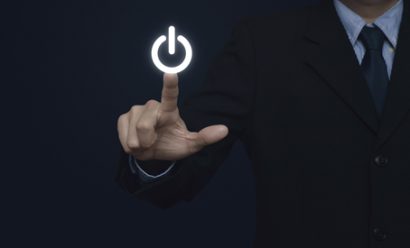News
Scientists may have found an “off” button for compulsive drinking

By targeting and inactivating a specific group of neurons, scientists at The Scripps Research Institute (TSRI), led by Assistant Professor Olivier George, were able to eliminate the urge to drink in animals who had been trained to be alcohol-dependent, effectively reversing the condition.
Previous research has shown that frequent alcohol use activates a particular set of neurons, reinforcing a reward circuit that drives alcohol use and can lead to alcohol use disorders. Building on this concept, the TSRI scientists sought to determine whether this neuronal group could be isolated and controlled.
The scientists designed an animal model in which alcohol-dependent rats expressed a special protein that distinguished the exact neurons that were activated by alcohol. The rats were then injected with a compound that could specifically target the alcohol-linked neurons in the brain’s amygdala and inactivate them, or, in effect, turn them off.
The researchers were surprised to find that these rats completely abandoned their compulsive drinking and that this change lasted for the entire period they were being monitored. “We’ve never seen an effect that strong that has lasted for several weeks,” said George. “I wasn’t sure if I believed it.”
The results were so surprising that the researchers ran the experiment two more times, each time obtaining the same results: The rats completely stopped their compulsive drinking. “It’s like they forgot they were dependent,” said George.
Despite the alcohol-specific behavior change, the rats still compulsively drank sugar water, indicating that the scientists successfully targeted the alcohol-activated neurons and not the overall reward system of the brain. The rats also lacked negative physical symptoms of alcohol withdrawal, such as shakiness.
The study, published in The Journal of Neuroscience, had another important finding illuminating a difference between casual binge drinking and addictive drinking. Only the rats who were alcohol-dependent fully stopped drinking after treatment. In rats who binge drank, but were not yet addicted to alcohol, turning off the alcohol-linked neurons only reduced their drinking for one day. After that, the non-alcohol-dependent rats returned to binge drinking. In this group, the brain appeared to just switch to a different group of neurons, possibly because a reward pathway had not yet been established.
Further research will be necessary to determine if these findings translate to humans. “It is very challenging to target such a small population of neurons in the brain, but this study helps to increase our knowledge of a part of the brain that is still a mystery,” said first author, TSRI Research Associate Giordano de Guglielmo.
”These results identify a critical neurobiological mechanism that is required for alcohol dependence,” stated the authors, “…which may lead to a better understanding of the etiology of alcohol use disorders, with implications for diagnosis, prevention, and treatment.”